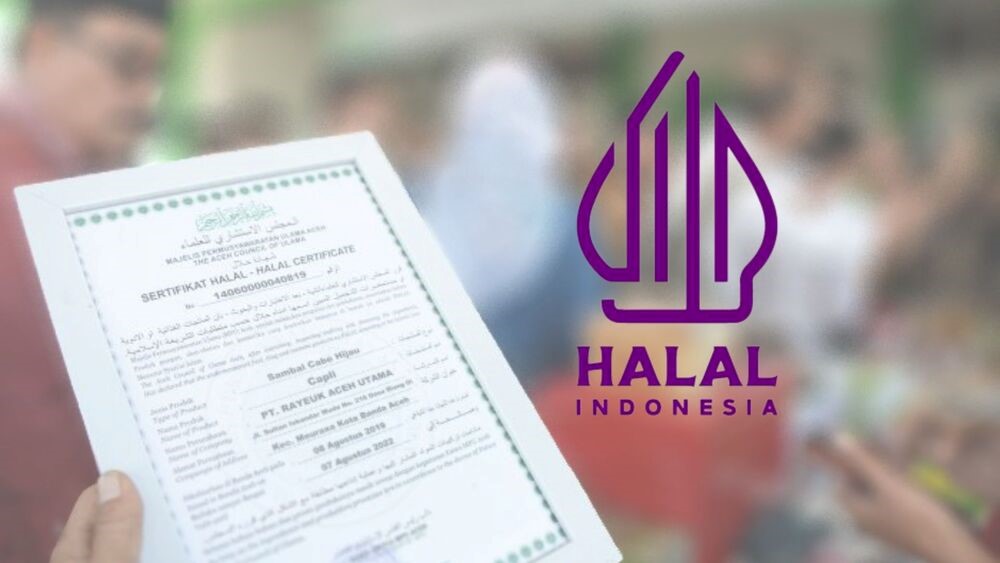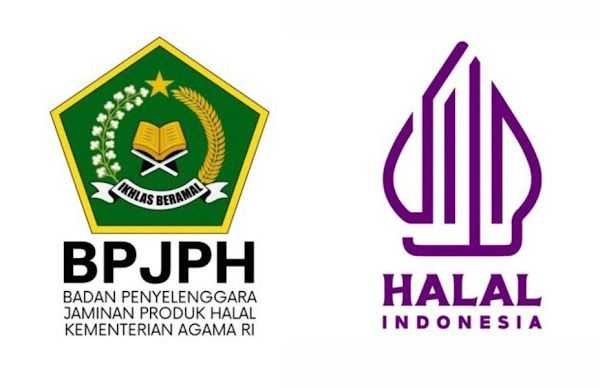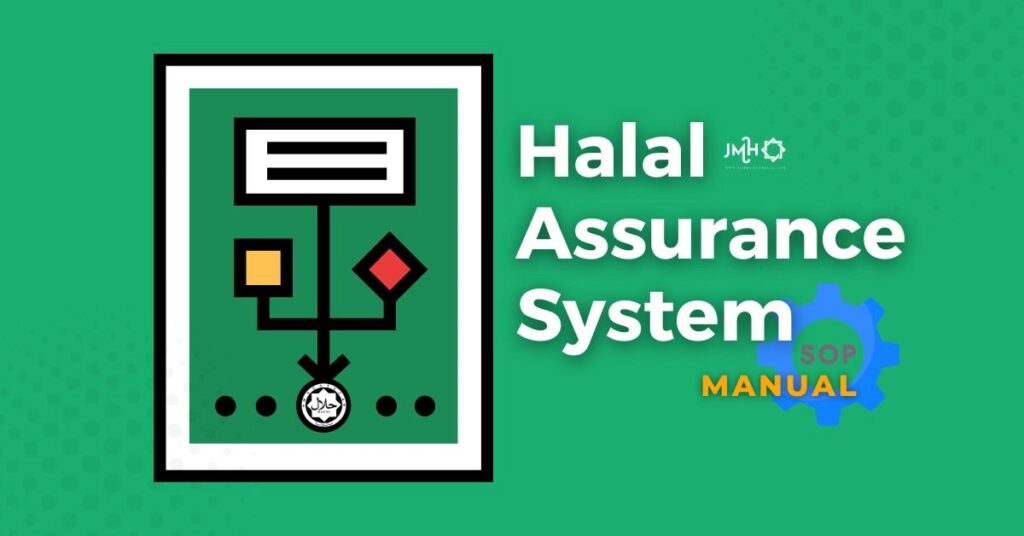The demand for Halal-certified products is rising in Indonesia, fueled by the country’s significant Muslim population and growing Halal market. Businesses in food, cosmetics, health, and other sectors must adhere to Halal certification requirements to meet consumer expectations and regulatory mandates. This comprehensive guide outlines the Halal certification process in Indonesia, from application to final approval, providing insights into the requirements, timelines, and common pitfalls to avoid.
Importance of Halal Certification in Indonesia
Halal certification in Indonesia holds immense significance, reflecting regulatory compliance, trust, and adherence to Islamic law. As the largest Muslim-majority country in the world, Indonesia’s consumers prioritize products that meet Halal standards, making the Halal certification process in Indonesia a cornerstone for businesses seeking to thrive in this market. With the global Halal economy expanding, understanding the Halal certification requirements in Indonesia is vital for companies aiming to build credibility and capture market share. In recent years, the demand for Halal-certified products has surged. According to reports, Indonesia’s Halal-certified product exports reached USD 61.59 billion in 2022, highlighting the immense growth potential for businesses complying with Halal certification. This upward trend is further supported by a 41% increase in certifications recorded in 2024, underscoring the critical role of organizations like LPPOM MUI (The Assessment Institute for Foods, Drugs, and Cosmetics of the Indonesian Council of Ulama). LPPOM MUI ensures that products meet Indonesia’s stringent Halal certification requirements.

Mandatory Halal Certification and Exemptions in Indonesia
The Halal certification process in Indonesia plays a crucial role in ensuring that products meet Islamic guidelines, aligning with the country’s majority Muslim population. Governed by strict regulations, the Halal certification requirements in Indonesia apply to various product categories that directly impact consumer choices and religious compliance. Understanding these mandatory requirements is essential for businesses seeking to navigate how to effectively get Halal certification in Indonesia.
Mandatory Product Categories
Indonesia mandates Halal certification for several critical product categories, as outlined by the Indonesian authorities. These include:
- Food and Beverages
This category encompasses processed foods, fresh produce, meat, and drinks. Products in this sector must adhere to strict Halal standards, from sourcing raw materials to production processes, ensuring compliance with the Halal certification process in Indonesia.
- Pharmaceuticals and Supplements
Traditional drugs, over-the-counter medications, and health supplements fall under mandatory Halal certification requirements. These products must meet specific guidelines set by LPPOM MUI, the official body responsible for Halal certification in Indonesia.
- Cosmetics and Chemical-Based Household Products
Skincare products, makeup, and household items such as detergents and cleaning agents must undergo the Halal certification. Businesses in these sectors must ensure their products meet the Halal certification requirements in Indonesia to maintain market credibility.
- Slaughtering Services
Slaughterhouses and butchers must comply with Halal standards, including the proper handling and processing of animals. The certification ensures that slaughtering practices align with Islamic guidelines, which is a critical component of the Halal certification process in Indonesia.
Exemptions
While the scope of Halal certification in Indonesia is extensive, certain products are exempt from certification. According to Government Regulation No. 39 of 2021, items containing materials explicitly deemed haram (prohibited) are excluded from the Halal certification requirements. These include products with:
- Alcohol: Beverages or consumables with high alcohol content.
- Pork Derivatives: Ingredients derived from pigs, such as gelatin or lard.
- Fanged Animal Products: Items sourced from carnivorous animals.
Businesses in these categories are not subject to the Halal certification process in Indonesia, as such products are inherently unsuitable for Halal compliance.
Step-by-Step Halal Certification Process in Indonesia
The Halal certification process in Indonesia ensures that products meet Islamic law and consumer expectations in a predominantly Muslim market. This structured process is managed by the Halal Product Assurance Organizing Agency (BPJPH), with inspections conducted by the Halal Inspection Institution (LPH) and approvals granted by the Indonesian Ulema Council (MUI). Here’s a comprehensive guide to understanding how to get Halal certification in Indonesia and ensuring compliance with Halal certification requirements Indonesia.
1. Submission of Application to BPJPH
The process begins with submitting an application to BPJPH. Businesses are required to provide detailed documentation demonstrating their readiness to comply with the Halal certification requirements Indonesia.

(Source: https://bpjph.halal.go.id/detail/bpjph-umk-harus-segera-bersertifikat-halal-agar-tak-tertinggal)
Required Documents:
- Business Identification Number (NIB).
- Photocopy of ID and Curriculum Vitae of key personnel.
- Halal Supervisor Certificate and Appointment Decree.
- Brand and product type information.
- Halal Assurance System (HAS) documents.
To facilitate this step, businesses can use BPJPH’s Halal Information System (SIHALAL) for online submissions. Accuracy and completeness of documents are critical, as BPJPH reviews applications within one business day and forwards them to LPH for further inspection.
Tips for Success:
- Double-check all documentation for accuracy and compliance with the Halal certification requirements Indonesia.
- Leverage the online submission platform (SIHALAL) to streamline the application process.
2. Inspection by Halal Auditors (LPH)
Once BPJPH forwards the application, the LPH appoints certified auditors to assess the production process. This inspection is central to the Halal certification process in Indonesia and involves a thorough review of the production chain, including facilities and raw materials.
Key Activities:
- On-site inspections to ensure adherence to Halal standards.
- Sampling and laboratory testing of ingredients and final products.
- Comprehensive reporting to the LPH.
Timeline: The inspection process is completed within 15 business days.
Common Challenges:
Incomplete or inconsistent production documentation can significantly delay this stage. Businesses are advised to maintain thorough records of raw material sourcing, processing protocols, and quality assurance measures to ensure smooth inspections.
3. Determination by the MUI Halal Fatwa Assembly
Following the inspection, the LPH submits its findings to the MUI Halal Fatwa Assembly. This body, comprising experts from the LPPOM MUI and MUI Fatwa Commission, evaluates the product’s compliance with Islamic principles.
Key Steps:
- Reviewing inspection reports and laboratory results.
- Issuing a fatwa (ruling) on the product’s Halal status.
Timeline: The fatwa determination is typically completed within three business days of receiving the inspection report.
Outcome:
- If the product meets all Halal certification requirements Indonesia, a Halal certificate is issued.
- If the product fails to comply, the application is rejected, with detailed reasons provided for corrective actions.
Renewal of Halal Certification in Indonesia
Renewing a Halal certificate is a crucial part of the Halal certification process Indonesia to ensure continued compliance and market credibility. Whether for large enterprises or micro, small, and medium enterprises (MSMEs), adhering to the renewal guidelines established by LPPOM MUI and other regulatory bodies is essential for maintaining Halal status. Understanding the steps involved in renewal and staying aware of Halal certification requirements Indonesia can prevent business disruptions and ensure seamless operations.
Validity Period and Renewal Necessity
The validity of a Halal certification Indonesia varies depending on the business scale. For large enterprises, the certification is valid for four years, while for MSMEs, it is valid for two years. Businesses must renew their Halal certificates within this timeframe to retain compliance. Furthermore, any changes in product composition or production processes during the certification period necessitate an immediate renewal. This requirement is integral to the Halal certification requirements Indonesia, ensuring that products consistently align with Islamic principles.
Required Documents for Renewal
To initiate the renewal process, businesses must submit specific documents demonstrating their continued compliance:
- Existing Halal Certificate: A copy of the currently valid Halal certificate.
- Declaration of Unchanged Product Composition: A formal statement confirming that the composition and production process have remained consistent.
Submitting these documents accurately and promptly is critical to avoiding delays in the Halal certification process Indonesia.
Timeline for Submission
Renewal applications must be submitted at least three months before the Halal certificate’s expiry date. This timeline allows regulatory bodies such as LPPOM MUI sufficient time to review the renewal application, conduct necessary inspections, and issue the updated certification. Businesses should proactively plan their renewal process, incorporating this timeline into their operational schedule.
Best Practices for Smooth Renewal
One effective way to ensure a hassle-free renewal is by scheduling regular audits of production processes and facilities. By conducting these audits, businesses can address potential non-compliance issues early and maintain alignment with Halal certification requirements Indonesia. Regular audits also serve as a preparatory step, streamlining the renewal process and reducing the likelihood of application rejection.
Key Tips for Success
- Plan Ahead: Start preparing your renewal application well in advance to ensure all required documents are in place.
- Stay Updated: Keep track of any updates to the Halal certification requirements Indonesia or changes in the guidelines issued by LPPOM MUI.
- Maintain Consistency: Avoid significant changes to product composition unless necessary, as these can complicate the renewal process.
Common Mistakes to Avoid in the Halal Certification Process
The Halal certification process Indonesia is a meticulous procedure requiring businesses to meet stringent guidelines to ensure compliance. Despite its importance, many businesses encounter delays or rejections due to avoidable errors. To streamline the process and align with the Halal certification requirements Indonesia, it’s vital to be aware of common pitfalls.
Incomplete Documentation
One of the most frequent mistakes in the Halal certification process Indonesia is the submission of incomplete or outdated documents. Proper documentation is the backbone of the certification process, as it provides evidence of compliance with Islamic guidelines. Businesses are required to maintain detailed records of raw materials, production processes, and supply chains. Missing information can lead to application delays or outright rejection.
Tips: Before submitting your application, ensure all necessary documents, such as raw material specifications, supplier certifications, and production protocols, are accurate and up-to-date. Using online platforms like SIHALAL provided by BPJPH can help streamline the documentation process when learning how to get Halal certification Indonesia.
Neglecting the Halal Assurance System (HAS)
The Halal Assurance System (HAS) is a critical component of the Halal certification requirements Indonesia. HAS is designed to ensure that all processes, from sourcing to production, adhere to Halal principles. However, some businesses overlook the importance of establishing or maintaining a robust HAS. This oversight can result in non-compliance, even if the products themselves meet Halal standards.
Tips: Develop a strong HAS framework and regularly audit your operations to ensure consistency. Engaging with experts or training internal Halal supervisors can be a proactive approach to maintaining compliance.

Misunderstanding Requirements
The Halal certification process Indonesia involves multiple regulatory bodies, including BPJPH, LPH, and LPPOM MUI, each with its specific guidelines. Misinterpreting these requirements is a common mistake that can lead to unnecessary delays. For instance, businesses may not fully understand the inspection procedures conducted by LPH or the criteria evaluated by MUI’s Halal Fatwa Assembly.
Tips: Familiarize yourself with the specific criteria outlined by these agencies or engage a Halal consultant to guide you through the process. This ensures that you meet all the Halal certification requirements Indonesia without confusion or missteps.
Last-Minute Applications
Procrastination is another critical error businesses often make. The Halal certification process Indonesia is time-intensive, involving multiple stages of review and inspection. Submitting applications close to product launch or certification expiry can create undue pressure and lead to delays that may disrupt operations.
Tips: Begin the certification process well in advance. Businesses should allocate sufficient time to address potential challenges, such as document verification, production adjustments, or additional inspections. When renewing a certificate, ensure applications are submitted at least three months before expiry.
Conclusion
In conclusion, the Halal certification process Indonesia is a structured and comprehensive pathway designed to ensure that products meet Islamic standards of purity and compliance. From submitting an application through BPJPH to undergoing inspections by LPH and final approval by the LPPOM MUI, each step requires meticulous attention to detail and adherence to the Halal certification requirements Indonesia. By understanding how to get Halal certification Indonesia and ensuring thorough documentation, compliance with the Halal Assurance System, and early initiation of the process, businesses can achieve Halal certification efficiently. This certification not only strengthens consumer trust but also enhances market competitiveness in Indonesia’s thriving Halal industry.
What is Halal certification, and why is it important in Indonesia?
Halal certification ensures that products comply with Islamic laws, making them permissible for Muslim consumers. In Indonesia, the largest Muslim-majority country, Halal certification builds consumer trust, meets regulatory standards, and supports business growth in the Halal market.
What products require Halal certification in Indonesia?
Halal certification is mandatory for food and beverages, cosmetics, pharmaceuticals, household products, and slaughtering services. However, products containing pork, alcohol, or materials deemed haram are exempt from certification.
How long does it take to get Halal certification in Indonesia?
The process typically involves a review by BPJPH, inspections by LPH, and approval by MUI, which can take several weeks. Inspections alone are completed within 15 business days, and a Halal Fatwa is issued within three business days post-inspection.
How can businesses avoid delays in the Halal certification process?
To prevent delays, businesses should ensure complete and accurate documentation, maintain a strong Halal Assurance System (HAS), and begin the application process early. Regular audits and familiarization with regulatory guidelines also help in streamlining the process.




